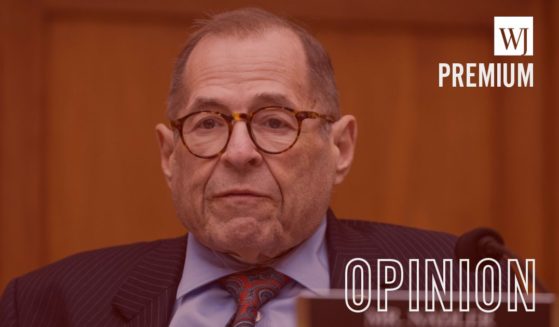
Appeals Court Rules Against Special Counsel Jack Smith Regarding Access to Rep. Scott Perry's Phone
The U.S. Court of Appeals for the D.C. Circuit ruled against special counsel Jack Smith, limiting his access to the phone records of GOP Rep. Scott Perry of Pennsylvania.
The FBI seized Perry’s phone in August 2022 before Smith was tapped to become special counsel as part of its investigation into former President Donald Trump’s alleged efforts to overturn the 2020 election.
“Prosecutors, however, did not immediately access Perry’s phone and instead sought a second search warrant governing its ability to review Perry’s communications with other members of Congress, the executive branch and others related to the 2020 election,” Politico reported.
Records obtained unlawfully generally are not permissible in court under the “fruit of the poisonous tree” doctrine, but it does have limited exceptions.
U.S. District Court Beryl A. Howell, an appointee of former President Barack Obama, granted Smith’s investigators access to most of the 2,200 records it sought on the phone in February, “saying releasing the information for the historic investigation outweighed the need for secrecy,” according to The Washington Post.
Perry had argued that his communications related to his responsibilities as a member of Congress, including informal fact-finding inquiries, are protected by the Constitution’s speech and debate clause.
Howell interpreted the privilege narrowly, concluding that “164 of 611 communications Perry conducted with other House members were privileged because they concerned core legislative actions involving Congress’s joint session to confirm the 2020 electoral college vote, and matters such as committee assignments,” the Post said.
The judge concluded the other approximately 1,600 communications to members of Congress, the executive branch and people not in the federal government were not privileged.
However, a three-judge panel of the D.C. Circuit Court of Appeals disagreed.
“While elections are political events, a Member’s deliberation about whether to certify a presidential election or how to assess information relevant to legislation about federal election procedures are textbook legislative acts,” Judge Neomi Rao, a Trump appointee, wrote in the court’s opinion filed on Wednesday.
“We disagree with the district court’s holding that informal factfinding is never a legislative act. But we also reject Representative Perry’s proposition that informal factfinding is always a legislative act,” Rao said.
The court instructed the district court that what is privileged and what is not will have to be sorted out based on the appeals court’s new guidance.
“Representative Perry’s conversations with other Members concerned the passage of proposed legislation as well as the exercise of the constitutional duty to certify the electoral votes from the 2020 election,” the judges said. “These communications were privileged, and we leave it to the district court to implement this holding on a communication-by-communication basis.”
New: DC Circuit unsealed its opinion in the fight over Rep. Scott Perry’s phone records in the Jan. 6 probe — panel rejected both sides’ proposed categorical rules, sent back for “communication-by-communication” reviewhttps://t.co/Abs7Qujoeh
Prev: https://t.co/0Lf4Wk9Hhd pic.twitter.com/5Cuc08QWc7
— Zoe Tillman (@ZoeTillman) September 13, 2023
As for Perry’s other communications with members of Congress, the executive branch and outside of the federal government, the appeals court offered a broader definition for the lower court to apply in determining which of the lawmaker’s communications are privileged.
Judge Karen LeCraft Henderson, nominated by President George H.W. Bush, joined in Rao’s decision. Judge Greg Katsas, appointed by Trump, filed a separate concurring opinion, explaining that he viewed the breadth of the congressional communications privilege slightly differently than the other judges, but the disagreement did not make a difference in Perry’s case.
Smith can appeal the decision to the full bench of the appellate court or to the U.S. Supreme Court.
Truth and Accuracy
We are committed to truth and accuracy in all of our journalism. Read our editorial standards.
Advertise with The Western Journal and reach millions of highly engaged readers, while supporting our work. Advertise Today.












